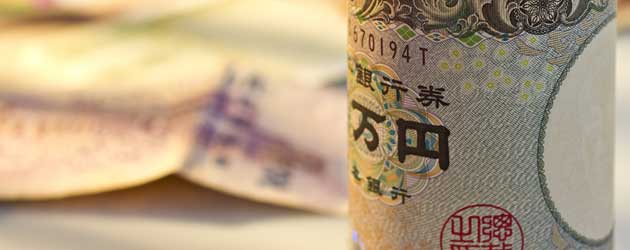 As the Islamic State battle looks increasingly like it will break out into a fully-fledged war, trader risk sentiment has weakened dramatically. The Japanese Yen, as a safe-haven asset, has gained on Wednesday after the Pentagon stated that the fight could take years to resolve. The Pound has softened after British Prime Minister David Cameron prepares to authorise airstrikes in Northern Iraq.
As the Islamic State battle looks increasingly like it will break out into a fully-fledged war, trader risk sentiment has weakened dramatically. The Japanese Yen, as a safe-haven asset, has gained on Wednesday after the Pentagon stated that the fight could take years to resolve. The Pound has softened after British Prime Minister David Cameron prepares to authorise airstrikes in Northern Iraq.
The Pound Sterling to Japanese Yen exchange rate is currently trending in the region of 178.0900.
Sterling has been subject to intense volatility over the past month or so. The build up to the Scottish independence referendum saw Sterling fade to record-lows amid trader anxieties of the potential consequences of an independent Scotland on the Pound. After the Unionists gained victory, however, Sterling surged against all sixteen of its most traded major currency competitors. This dramatic increase in demand opened up some attractive selling positions and the Pound fell back down to Earth as traders locked in their profits.
Tuesday’s British data has left a lot to be desired, especially when you consider how sparse the economic calendar is this week. Of particular concern, for those invested in the Pound, was the Public Sector Net Borrowing data which showed government debt to have risen exponentially from -1.1 billion to 10.9 billion.
The Japanese Yen has been struggling against the US Dollar’s bullish run. However, on Tuesday the US Dollar softened after Federal Reserve Bank of New York President William C. Dudley said that a stronger currency could potentially hurt US economic growth.
The Pound Sterling to Japanese Yen exchange rate has hit a low today of 177.6200.
With an absence of British economic data on Wednesday the Pound has struggled to curtail the downtrend sparked off by Tuesday’s disappointing data. Further troubles have come in the form of mounting geopolitical tensions. Prime Minister David Cameron stated that Islamic terrorists are out to ‘kill and maim’ UK citizens. He is preparing to authorise airstrikes on Northern Iraq saying that Britain cannot ‘opt out’ of the fight against the extremists.
Those invested in the Japanese Yen would have been pleased with Prime Minister Shinzo Abe’s comments that he wants to be ‘careful’ about recent weakness in the economy. The Yen has continued to profit from a weaker US Dollar as explained by Masato Yanagiya, head of currency and money trading at Sumitomo Mitsui Banking Corp. in New York; ‘The dollar has hit some highs so it’s natural that positioning would cause some selling pressure. That has just started to surface now, so it probably has a bit of time still to run’.
Wednesday’s Japanese data has been a little disappointing, but the poor result is not enough to overshadow the increase in demand as geopolitical tensions escalate. The Japanese Manufacturing PMI fell from 52.2 to 51.7. Amy Brownbill, Economist at Markit stated; ‘September data indicated further stable growth for Japanese manufacturers, with output rising to the strongest degree in six months and new orders remaining in modest growth territory. Despite a positive outlook, payroll numbers dropped for the first time in fourteen months in September, albeit at a fractional pace. And, a fall in backlogs of work would suggest that Japanese manufacturing firms have sufficient capacity to cope with higher incoming new orders’.
Forecast for the Pound to Japanese Yen Exchange Rate
Thursday will see an important economic event from a British perspective. Bank of England Governor Mark Carney will be giving a speech in Wales. Those invested in Sterling will be hoping that Carney will avoid making a dovish speech in order for the Pound to rebound from its current downtrend.
Thursday’s Japanese data will be fairly inconsequential and is unlikely to overshadow the demand from weak risk sentiment. Corporate Service Price is expected to equal the previous figure of 3.7%.
Friday’s British data will have little influence on Sterling movement. The Yearly Hometrack Housing Survey hit 5.5% previously.
There is a plethora of Japanese data on Friday. The most important, in terms of provoking wider market movement, will be the National Consumer Price Index. As the most important indicator of inflation, CPI figures are closely followed by the Bank of Japan. It is forecast to decline from 3.4% to 3.3% which will be a good sign for Japan should the market consensus come to fruition given that the Bank of Japan’s inflation target is at 2.0%.
The Pound Sterling to Japanese Yen exchange rate has reached a high today of 178.3000.
UPDATE
Although the Pound was trending in a stronger position against several of its main currency rivals on Thursday, the GBP/JPY pairing shed a further 0.2% as a Syria-inspired risk-off environment prevailed and investors turned to the safe-haven Yen.
The Yen was also enjoying a bullish relationship with peers like the US Dollar and Euro.
Overnight Japan published Corporate Service Price figures. The data came in at 3.5% year-on-year, less than the 3.7% expected.
However, the report had little impact on the Pound to Japanese Yen exchange rate.

